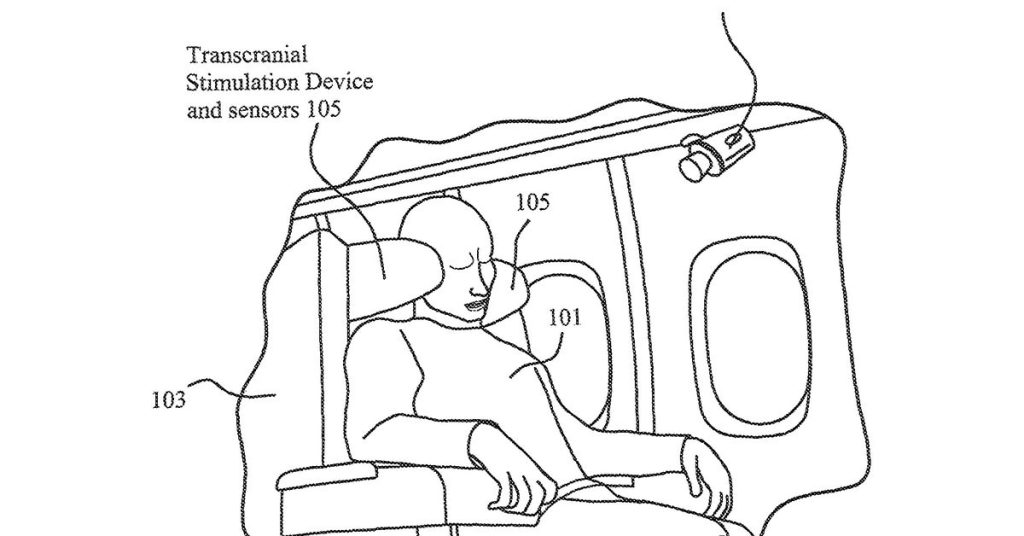
Commercial air travel is a largely terrible experience, and aviation companies patent a lot of ways to make it either slightly less miserable or an even more dystopian hell. Where does reading passengers’ emotions to offer them transcranial stimulation therapy fall? I’ll leave that up to you.
Brazilian aerospace manufacturer Embraer filed a patent application for a “brain stimulation system to provide a sense of wellbeing” back in 2016, and it was granted last year. But I only discovered it thanks to a more recent Mastodon post by attorney Jeff Steck, and I am fascinated. Embraer’s reasonable starting premise is that lots of people become anxious on long car, train, and airplane rides, “turning a short trip into a long one.” From there, it envisions a complex system that covers:
In other words, your airplane seat could read your face, tell if you’re anxious, and (if you so desire) deliver an electrical or magnetic signal to theoretically calm you down.
Transcranial magnetic or current stimulation is an accepted treatment for depression and a potential option for some other mental health conditions, and you can already buy noninvasive devices that provide it for home use. An airline delivering it based on facial analysis would raise a huge host of privacy and personal data security issues, but companies file patents that are never commercialized all the time. So I’m not personally expecting electrification as a perk on my next flight — although the Jerry Seinfeld jokes about it practically write themselves.

 Latest Breaking News Online News Portal
Latest Breaking News Online News Portal




